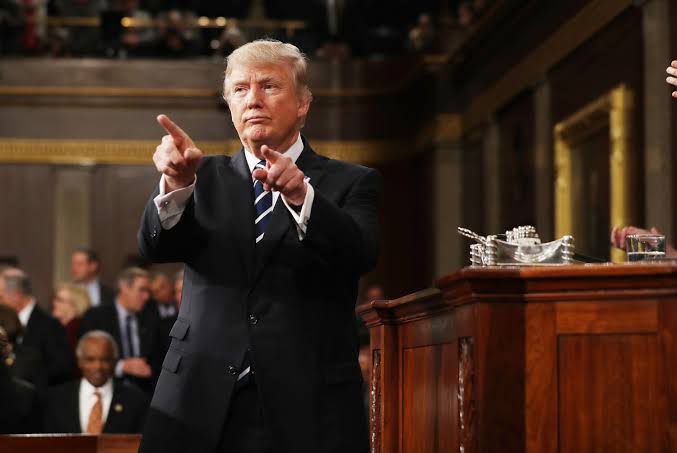Washington, July 1: President Donald Trump’s sweeping tax cuts and spending bill cleared a crucial hurdle on Tuesday as Senate Republicans pushed it through by the narrowest of margins, concluding a marathon overnight session marked by political brinkmanship and deep internal divisions.
Vice President J.D. Vance cast the decisive vote to break a 50-50 tie in the chamber, allowing the legislation, formally titled the “One Big Beautiful Bill Act,” to advance. Despite holding majorities in both chambers of Congress, Republican leaders were forced into a last-minute scramble to secure enough support after days of tense negotiations and public disputes.
Three Republicans Senators Thom Tillis of North Carolina, Susan Collins of Maine, and Rand Paul of Kentucky broke ranks and voted against the bill. Their opposition underscored persistent concerns over proposed cuts to Medicaid and increases to the federal debt ceiling, even as the broader party rallied to deliver on Trump’s flagship economic promise.
The legislative marathon unfolded in chaotic scenes on Capitol Hill, with vote after vote stretching into the early hours. Senate Majority Leader John Thune of South Dakota was seen negotiating frantically with wavering members, trying to reconcile demands from moderates alarmed by social program cuts and conservatives who insisted on deeper spending reductions.
The legislation now returns to the House, where Speaker Mike Johnson has signaled unease over changes made in the Senate, particularly provisions affecting Medicaid. The House had previously passed its version of the bill, and the differences must be reconciled before the measure can head to Trump’s desk — a race against time as the President insists on a July Fourth signing.
President Trump, departing Washington for Florida, acknowledged the bill’s complexity, stating, “I don’t want to go too crazy with cuts. I don’t like cuts.”
At the heart of the measure are $4.5 trillion in tax reductions, preserving Trump’s 2017 tax rates, which were due to expire this year, while adding new provisions like eliminating taxes on tips. The bill also proposes $1.2 trillion in spending cuts over the next decade, focused mainly on Medicaid and food assistance programs, through stricter work requirements and changes to federal reimbursement formulas.
The bill includes $350 billion for border security and deportation efforts, funded partly through new fees on immigrants. However, it rolls back billions in green energy tax credits, a move Democrats warned would severely damage investments in wind and solar industries nationwide.
An analysis by the nonpartisan Congressional Budget Office projected the legislation would increase the federal deficit by nearly $3.3 trillion over the next ten years. It also warned that about 11.8 million more Americans could lose health insurance by 2034 if the proposed Medicaid changes become law.
Senate Democratic Leader Chuck Schumer lambasted the bill as deeply unpopular, accusing Republicans of “shambles” and fiscal hypocrisy. Tensions also flared outside Congress, with billionaire Elon Musk unleashing criticism on social media, labeling the GOP the “PORKY PIG PARTY” for including a $5 trillion debt ceiling hike in the package.
Senators on both sides of the aisle appeared unsatisfied even as the bill cleared its hurdle. Senator Collins had tried unsuccessfully to double the proposed $25 billion fund for rural hospitals, funded by higher taxes on ultra-wealthy Americans. Senator Lisa Murkowski of Alaska spent hours locked in negotiations over food stamp cuts affecting her state, securing partial concessions.
Meanwhile, a bloc of conservative senators, including Rick Scott of Florida, Mike Lee of Utah, Ron Johnson of Wisconsin, and Cynthia Lummis of Wyoming, continued to press for deeper cuts, filing into Senator Thune’s office near midnight in pursuit of further negotiations.
Democrats used procedural tactics to slow the bill’s progress, forcing a rare full reading of the text over the weekend and proposing numerous amendments, though most were defeated. One significant bipartisan amendment removed a provision that would have prohibited states from regulating artificial intelligence if they received certain federal funds.
As the dust settles, the fate of the bill now rests with House lawmakers who must balance party loyalty, economic consequences, and public opinion in a volatile election year. The stakes remain high for Trump and his Republican allies as they attempt to deliver a legislative victory ahead of the Fourth of July.
Trump’s Tax Cuts and Spending Bill Passes Senate in Dramatic Tiebreaker Vote

